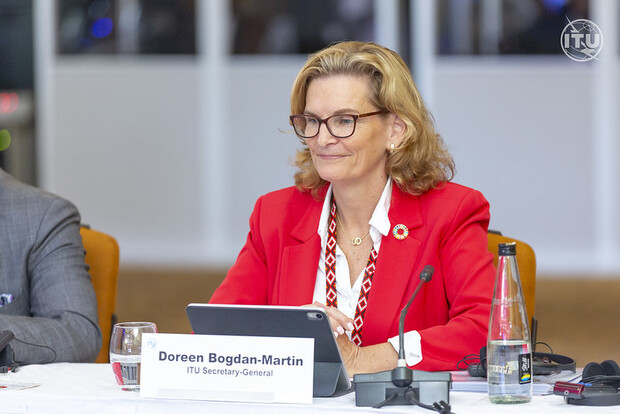Tech Sector Emissions Rise Despite Progress, Fueled by AI Growth, Report Finds
Tech Sector Emissions Rise Despite Progress, Fueled by AI Growth, Report Finds
Despite the challenges posed by rising emissions, the report notes progress in transparency and accountability.
RMN Digital AI Desk
June 5, 2025
GENEVA – 05 June 2025 – A new report reveals that carbon emissions from the tech sector continued their upward trajectory in recent years, driven significantly by the rapid expansion of artificial intelligence (AI) and data infrastructure. However, the report also highlights encouraging signs of progress among leading digital companies in setting climate targets and adopting renewable energy.
The “Greening Digital Companies 2025” report, a collaboration between the International Telecommunication Union (ITU) and the World Benchmarking Alliance (WBA), tracks the environmental footprint and climate commitments of 200 major digital companies based on data up to 2023.
According to the report, the global expansion of AI is fueling increased energy demand. Electricity consumption by data centers, which are critical for AI development and deployment, increased by 12 per cent each year from 2017 to 2023, a rate four times faster than global electricity growth. Four leading AI-focused companies saw their operational emissions (Scope 1 and Scope 2) increase by an average of 150 per cent since 2020. This rise in energy consumption underscores the urgent need to manage AI’s environmental impact.
In 2023, the greenhouse gas emissions reported by 166 digital companies covered in the study contributed 0.8 per cent of all global energy-related emissions. The report also found that the 164 digital companies reporting electricity consumption accounted for 2.1 per cent of global electricity use, totalling 581 terawatt-hours (TWh). Notably, just 10 companies were responsible for half of this total electricity consumption.
[ The Perils of Artificial Intelligence: A Powerful Tool or a Dangerous Weapon? ]
“Advances in digital innovation — especially AI — are driving up energy consumption and global emissions,” said ITU Secretary-General Doreen Bogdan-Martin. “While more must be done to shrink the tech sector’s footprint, the latest Greening Digital Companies report shows that industry understands the challenge — and that continued progress depends on sustaining momentum together”.
Despite the challenges posed by rising emissions, the report notes progress in transparency and accountability. Eight companies scored above 90 per cent in the report’s climate commitment assessment, up from only three the previous year. For the first time, the report included data on progress towards climate targets, revealing that almost half of the assessed companies had committed to achieving net-zero emissions, with 41 targeting 2050 and 51 aiming for earlier deadlines.
Other positive trends among the 200 companies include:
- Renewable energy adoption: 23 companies operated on 100 per cent renewable energy in 2023, an increase from 16 in 2022.
- Dedicated climate reporting: 49 companies released standalone climate reports.
- Scope 3 consideration: The number of companies publishing targets for indirect emissions from supply chains and product use rose from 73 to 110.
“Digital companies have the tools and influence to lead the global climate transition, but progress must be measured not only by ambition, but by credible action,” stated Lourdes O. Montenegro, Director of Research and Digitisation at WBA. “This report provides a clear signal to the international community: more companies are stepping up, but emissions and electricity use continues to rise”.
The joint ITU-WBA report urges companies to ensure long-term digital sustainability by:
- Strengthening data verification, target ambition, and climate reporting, including publishing climate transition action plans.
- Disclosing the full environmental footprint of their AI operations.
- Fostering cross-sector collaboration among tech firms, energy producers, and environmental advocates.
- Continuing to accelerate renewable energy adoption.
Cosmas Luckyson Zavazava, Director of ITU’s Telecommunication Development Bureau, highlighted the report’s importance in tracking the sector’s climate footprint. “Despite the progress made, greenhouse gas emissions continue to rise, confirming that the need for digital companies to adopt science-aligned, transparent, and accountable climate strategies has never been greater”.
ITU is also working through initiatives like the Expert Group on Telecommunication/ICT Indicators and Green Digital Action to support national GHG monitoring and ensure digital impacts are reflected in climate pledges ahead of COP30.















